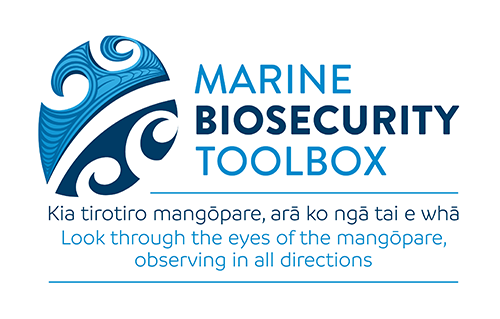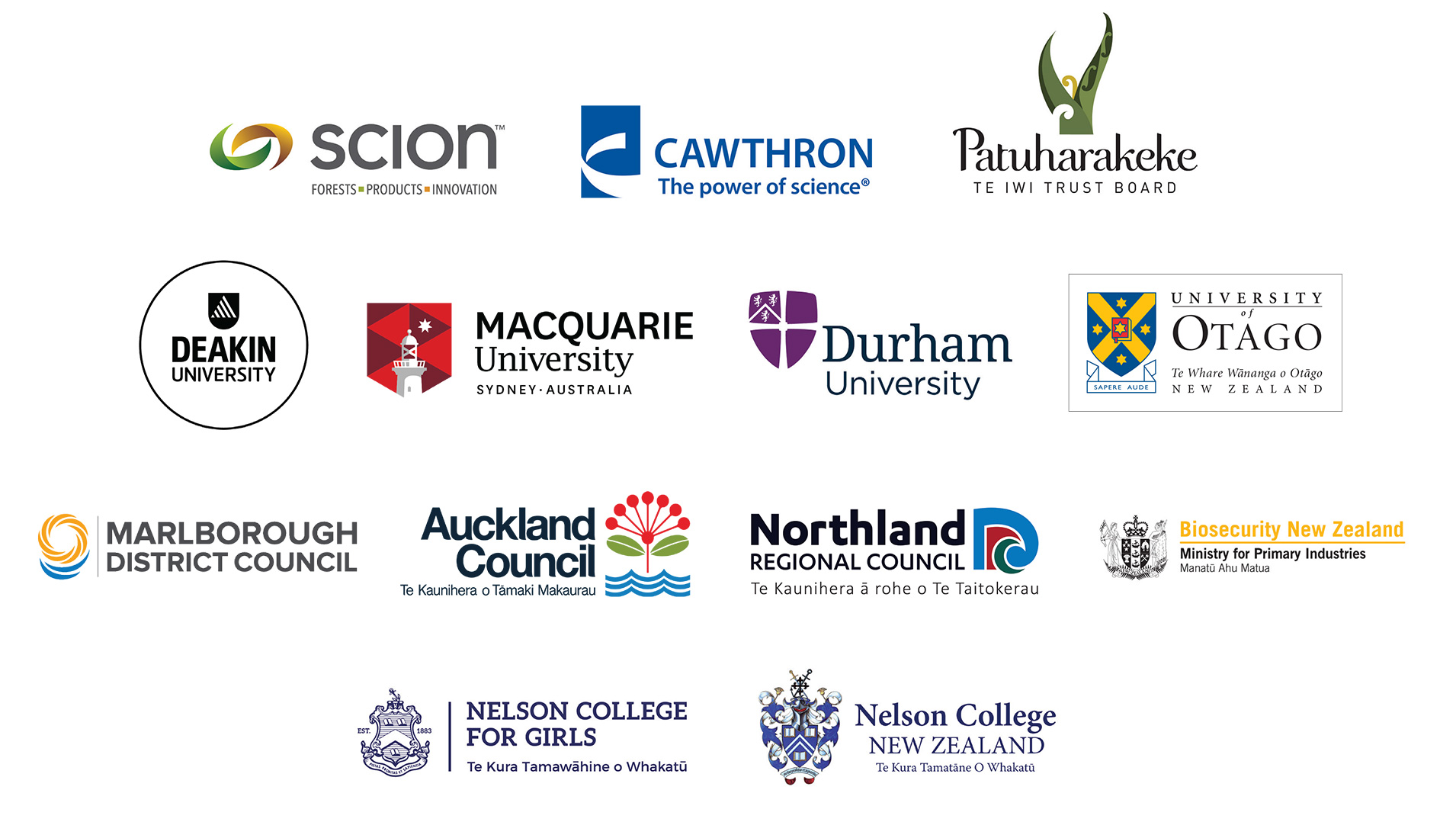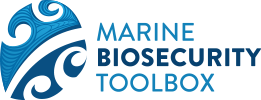The Marine Biosecurity Toolbox is a 5-year (2019-24) research programme aimed at protecting New Zealand’s marine environments from the impacts of non-indigenous species. The programme is jointly funded by the New Zealand Ministry of Business, Innovation and Employment (MBIE) and a unique group of science, Māori, regulatory and industry organisations. The programme’s objective is to develop transformative ‘tools’ that empower regulators, industry, Mana Whenua, and the community to effectively manage risk pathways, prevent pest establishment, and detect and respond to new incursions.
Mātauranga Māori (traditional Māori knowledge and cultural practices) will be interwoven through all research components of the programme. Combined with state-of-the-art western science approaches it will enable a holistic perspective to be applied to managing marine biosecurity challenges. This is also reflected in the logo designed by artist Marino Duke and the whakatauki (adage) gifted by Patuharakeke as a motto for the programme.

Both are inspired by the mangōpare or hammerhead shark. Being strong, fierce, determined, knowledgeable and smart, the mangōpare is seen as a guardian or kaitiaki by many iwi/hapū (tribes/clans) and a tohu or a symbol species. The mangōpare has a number of features, which resonate with the vision and the spirit of the Marine Biosecurity Toolbox programme:
- The mangōpare has the ability to observe in all directions (360 degrees), around the 4 corners of the world through the flowing of the tides (covering all parts of the moana, the ocean)
- When the mangōpare looks forward it connects to the idea of this programme being about looking forward for new technologies and tools for detection and monitoring
- At the same time, the mangōpare looks alongside, connecting to the ideas of tiakitanga (protection) and the health of the surrounding taiao (environment)
- Simultaneously it can look backwards – connecting to the ideas of holding on to tikanga (Māori culture) and māturanga (wisdom) and taonga tuku iho (treasures) passed down to us by our tupuna (ancestors).
This collaborative programme brings together a multidisciplinary research team from New Zealand and international science organisations. The research agenda is designed around end-user needs and will be implemented in partnership with regional councils from northern to southern New Zealand, central government agencies, Māori, schools and the maritime and aquaculture industries.
The programme partners are listed below. Contacts for key team members are provided on the Research pages and the Team page.

